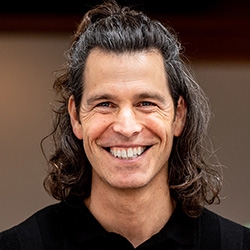

NVC Resources on Judgment
-
Have you ever found yourself passing judgment on a co-worker's seemingly disorganized desk? Mary Mackenzie's experience sheds light on the fact that she and her colleague with the "messy desk" shared a common need for order. Recognizing that our needs align can lead to a softening of judgments, creating space for connection, understanding, and harmony.
-
Miki demonstrates how to work with judgmental thinking, offering a two-step process to shift from right/wrong thinking about our disagreements to a more open-hearted state of being.
-
Yoram Mosenzon discusses judgmental dialogue and its hidden aim to meet needs. This often creates distance instead of fostering connection. Yoram introduces a self-connection exercise to improve the chances of dialogue becoming more enriching and life-serving.
-
Trainer tip: Judging others can affect our ability to communicate effectively with that person, or enjoy the relationship. Translating the static judgments (enemy images) we have of others into our own and others' feelings and needs can help us move into greater understanding, healing, and relief -- which can foster compassion and connection. Read on for more.
-
Trainer Tip: When we express appreciation using words like "good", "great" or anything else evaluative, it conveys we are in the position to judge, and that we've judged them or their actions. Instead, to express appreciation without judgment state what they did, how you feel about what they did, and which of your needs are met by their behavior. Such an expression of appreciation clearly states how your life was enriched, without judgement.
-
If you dread family gatherings because of family tensions, you can find ways to excavate through piles of hardened judgments and hopelessness, build on your inner strength, and engage with family conflicts with open-hearted curiosity, greater presence, and connecting with what really matters to everyone.
-
People find confrontation inspirational when done with full compassion and intention to support. To do this, transform your own judgments or distress, come with useful content plus spot-on timing, and the best interests of the receiver in mind. Read on for questions you can ask yourself in preparation for this, and more.
-
As parents, aligning our values with our actual behavior can be challenging. In this video, Roxy discusses the importance of modeling behavior for children, both in how they handle challenges and in their overall approach to life. Her message encourages using real-life examples to show that everyone is a work in progress and that it's okay not to be perfect.
-
Children interpret and create meaning from everything they observe. They form a narrative about themselves and their place in the world. Roxy Manning shares how the stories of parents contribute to this narrative. Roxy shares a personal story where she, in an attempt to highlight her son's intellectual gifts, unintentionally influenced him to believe he couldn't do things on his own and wasn't smart. The impact of stories like this on a child's self-perception is long-lasting. Roxy urges us to consider the unintended messages that our words and actions may convey, as these narratives can be challenging to shift once established.
-
Ask the Trainer: "What guidance do you have for working with enemy images? Can you say some things about processes and/or exercises that can bring relief from this trap?"

Quick Links
Subscription Preferences
Stay In Touch!
Looking for ways to keep up with NVC Academy news, get special offers, free resources, or words of inspiration? Here are five ways to stay engaged:









